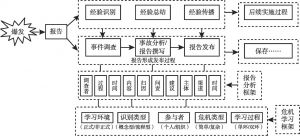章节
政府危机学习挑战:基于中美事故调查报告的比较
关键词
作者
检索正文关键字
章节目录
- 一 引言与问题提出
-
二 研究对象及分析框架
- 1.案例选择
- 2.分析框架
- 3.数据收集和分析思路
-
三 事故调查报告的中美比较
- 1.事故调查方面
- 2.事故分析/报告撰写方面
- 3.报告发布方面
- 4.比较结果
-
四 基于事故调查报告的危机学习挑战
- 1.要保持调查过程的独立性以及方法的科学化,以提升报告的公信力
- 2.要减少调查报告的官僚色彩,以增强经验利用的可行性
- 3.要在合适的时间内更大范围地发布报告,以提高经验传播的广泛性
- 五 本章小结
相关文献
查看更多>>>








